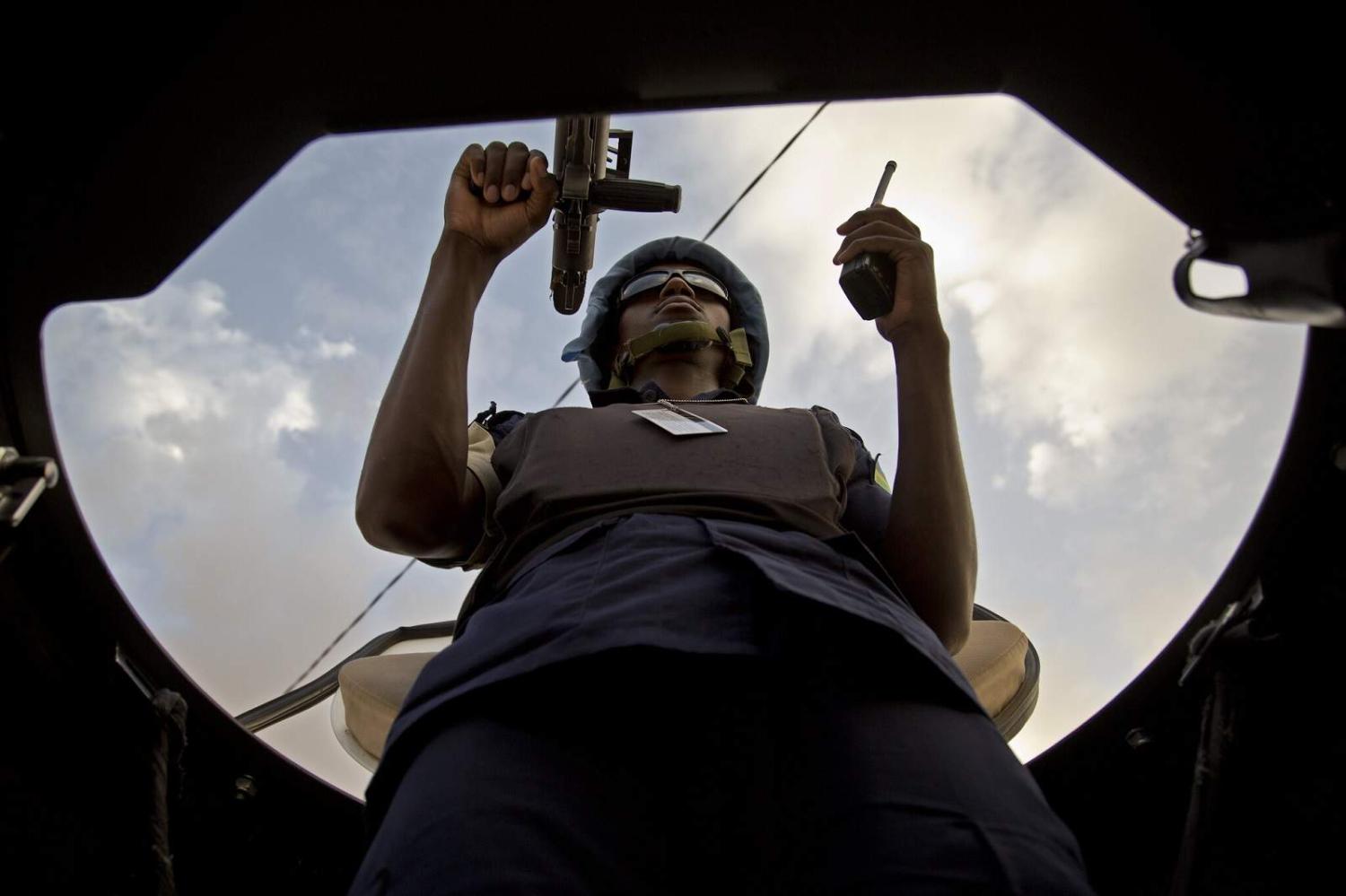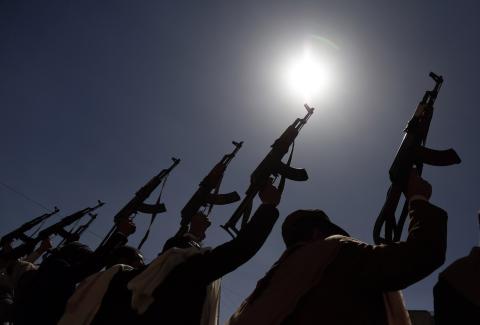Billed as a “monumental” agreement, the United Nations Office of Counter-Terrorism (UNOCT) recently signed a Strategic Partnership Framework Action Plan with the Department of Peacekeeping Operations (DPO). The role of this action plan is to guide the development of counter-terrorism and prevention of violent extremism joint programs in UN peacekeeping missions, special political missions and beyond.
UN peace operations have struggled to operate in increasingly volatile environments marked by extremist and terrorist threats. So, on the surface, combining the resources and expertise of the UNOCT with the field presence of the DPO is a smart move.
However, peacekeeping and counter-terrorism efforts at the UN have intentionally been kept separate before now, and for some very good reasons.
UN peacekeeping plays a unique role in maintaining international peace and security. As of September 2021, there were more than 87,000 personnel from 121 different countries serving in 12 peace operations across the world. The soldiers and staff in these missions represent the collective security ethos of the United Nations. Building on early experiences of peacekeeping in the 1940s and 1950s, the UN established three core principles for peacekeeping: consent of the conflict parties, impartiality, and non-use of force except in self-defence. For more than 50 years these principles have helped peacekeepers – mostly successfully – engage in in conflict zones while remaining separate from the conflict itself.
The UN peacekeeping mission in Mali is the deadliest on record because terrorist groups do not distinguish between UN peacekeepers and the counter-terrorism forces they support.
The terrorist attacks of 9/11, however, have put immense pressure on peace operations to do more to prevent extremism and counter terrorist violence. There are many synergies between the work of the UNOCT and DPO that can and should be leveraged to increase peacekeeping effectiveness, but this needs to be done only after taking into account the unique nature of peace operations. Simply adding counter-terrorism tasks to peacekeeping mandates will likely make an already difficult job, much harder.
First, peacekeepers are supposed to be impartial, but supporting counter-terrorism forces can make peacekeepers party to the conflict. Once this occurs, peacekeepers become targets for attack.
The UN peacekeeping mission in Mali, for instance, is the deadliest on record because terrorist groups do not distinguish between UN peacekeepers and the counter-terrorism forces they support. As a result, many states that currently contribute personnel to peace operations hesitate to support peace operations with counter-terrorism as part of their mandates.

Second, counter-terrorism tasks fall well beyond the capabilities of most peace operations. Peacekeepers are notoriously underfunded, undertrained and underresourced. Effective counter-terrorism requires specialised training, anti-terrorist equipment and skills, and access to intelligence. For example, peacekeepers in Mali do not have the correct kit to disarm roadside bombs.
Third, many states where peacekeepers deploy are lacking the infrastructure to support counter-terrorism efforts. Effective counter-terrorism relies on operational judicial systems to arrest and then legally try terrorist suspects, penal systems to hold them, and political alternatives for people to use in lieu of political violence. These are capacities that peace operations can support but cannot fill by themselves, yet they must be in place to do effective counter-terrorism.
Fourth, supporting counter-terrorism can make peacekeepers complicit or even responsible for human rights abuses. Both individual states and counter-terror forces have taken heavy-handed approaches to countering terrorist threats. If peacekeepers partner with such host-states or anti-terrorist interventions by other actors, they can be implicated in human rights violations.
This has already happened in Mali where peacekeepers logistically support Malian forces as part of the G5-Sahel counter-terrorism force. There have been credible allegations of severe human rights abuses during counter-terror operations such as forced disappearances, torture and summary executions. Such negative experiences actually drive radicalisation and can make the terrorist situation worse.
Combining peacekeeping with counter-terrorism closes off political space that successful peace operations need.
Fifth, peace operations deploy to states that are struggling to maintain order, often because they lack legitimacy with the population. These states can be predatory and abusive and use counter-terrorism resources to regain or maintain their hold on power. So, while they might combat terrorist groups, they may also designate legitimate political opposition as terrorists and use counter-terrorism as a way to restrict civil society and organised dissent. Support to such states, even to counter-terrorism, undermines the priorities of almost all peace operations, which are to protect civilians, promote democracy and restore stability.
Lastly, while peacekeepers may strive to be impartial, peace operations are political endeavours. Beyond stabilisation and protection, peace operations facilitate and support political resolutions between conflict parties. Combining peacekeeping with counter-terrorism closes off political space that successful peace operations need.
While acts of terrorism are reprehensible, when aggrieved actors are labelled as terrorists their – often legitimate – grievances become sidelined and overlooked. Counter-terrorism efforts might then be addressing the symptoms but, without addressing these underlying problems, peace operations will not be able to lay the framework for a sustainable peace.
It is true that peace operations now deploy into environments where there are active terrorist threats. More can and should be done to support them as they operate in these environments. However, before combining peace operations with counter-terrorism it is important to ensure that there are no unintended consequences from such a union.

